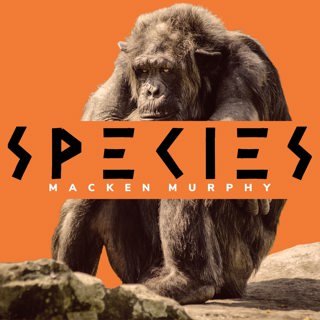
Lamprey
It is ridiculous that all the aliens we've made up have jaws. Come find out why, and learn about the fish that lack them. Bibliography: https://docs.google.com/document/d/1npNiNPEIkuVmjfjSbW346YaT28eoNdOUubCWkaww0gM/edit?usp=sharing
22 Feb 202127min

Hamster
Why do hamsters eat their babies? What language calls them "Mr. Saddlebags," and why? Who would win, a hamster or a wasp? Bibliography: https://docs.google.com/document/d/1OxSxISRaNmFfB60z-3akij2nbsAPjVqqfNxXzqL2mbM/edit?usp=sharing
15 Feb 202122min

Globe Skimmer
What percentage of the population could you plausibly have a child with? Come learn about a species that may have acheived global panmixia. Bibliography: https://docs.google.com/document/d/1JpZAzmg7ZCuT4I3hzm_J3Xa_qZiPM0l_M1kp94XAohc/edit?usp=sharing
8 Feb 202124min

Harpy Eagle
The biggest eagle on earth (debatably). Come learn about a monster on this episode of Species. Bibliography: https://docs.google.com/document/d/1Tl56m5p9t60wa9R4mhAHsLO6LkXMqb_yyTVwn2WfEJ4/edit?usp=sharing
1 Feb 202121min

Mudskipper
Come learn about a fish that walks on land and ruins Einstein quotes on this episode of Species. Bibliography: https://docs.google.com/document/d/1eAk_FQb_6-PdLldZDS7Lc4q9cUmSFQ3NFDk-qqkSlmA/edit?usp=sharing
25 Jan 202117min

Kangaroo
The slower they go, the harder they work. Learn about why kangaroos hop, why they have pouches, and why they are the weirdest grazing animals on earth on this episode of Species. Bibliography: https://docs.google.com/document/d/1x7yA0OS_iHuNiXATwFOZwkvcrpkqg1ivIgIO5W_P5eY/edit?usp=sharing
17 Jan 202120min

Boxer Crab
Did humans evolve to punch each other in the face? Are we more violent than ever? This crab uses sea anemones as boxing gloves. Come learn about them. Bibliography: https://docs.google.com/document/d/1pXgDZZrpqYz_CJm9M-hg7UZ1ibwVgbgu3s-FfmvTMsA/edit?usp=sharing
11 Jan 202119min

Rockhopper Penguin
Why did penguins lose the ability to fly? What's up with those yellow eyebrows? Does expertise come at a cost? Find out all of these things and more on this episode of Species. Bibliography: https://docs.google.com/document/d/1xoa9Z6KnhD-WTvWYoWfnlnUI9YAxz3mba5r7YQRusbI/edit?usp=sharing
4 Jan 202122min




















